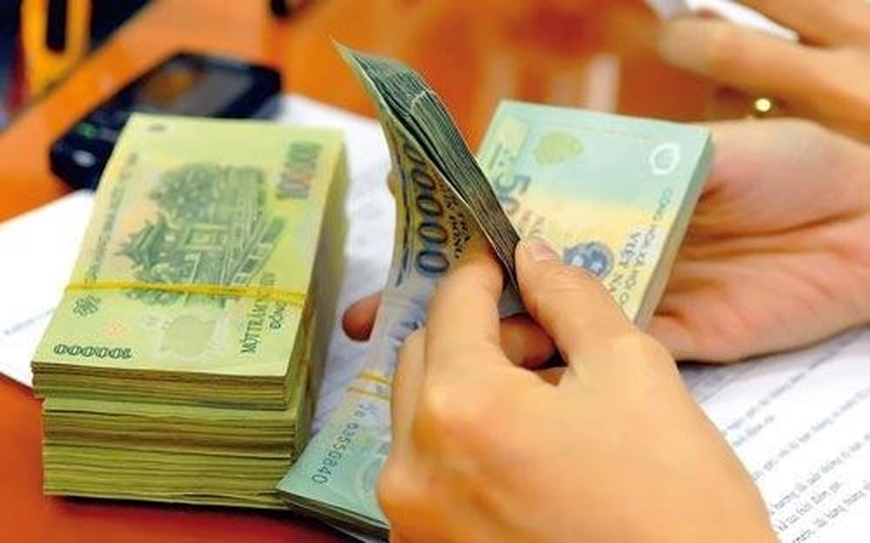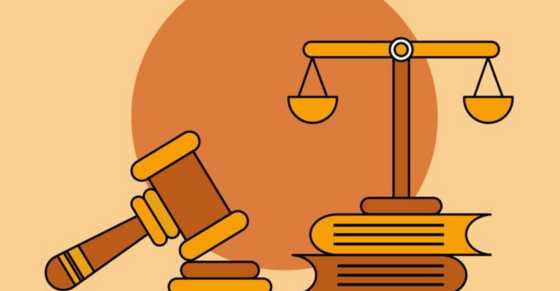Implementation resources for salary reform in Vietnam 2024
What are the regulations on implementation resources for salary reform in Vietnam 2024? - Hai Chau (Thanh Hoa)

Implementation resources for salary reform in Vietnam 2024 (Internet image)
On December 29, 2023, the Minister of Finance issued Circular 76/2023/TT-BTC on the organization of implementing the state budget estimate for 2024.
Implementation resources for salary reform in Vietnam 2024
(1) From July 1, 2024, implement synchronized salary policy reform according to Resolution 27-NQ/TW of 2018.
(2) Central ministries and agencies shall implement mechanisms to generate resources for implementing salary policy reform as prescribed. In this regard, the scope and percentage of revenue collection to be retained for implementation shall be determined in accordance with the provisions at points e and g of Clause 4 of Article 4 of Circular 76/2023/TT-BTC.
At the same time, when allocating and assigning budgets to subordinate units, they must identify a 10% savings in regular expenditure for 2024 compared to the 2023 estimate (excluding salaries, allowances, contributions based on salary, expenses related to salary, and expenses for human resources according to regulations) for salary reform.
(3) People's Committees of provinces and centrally-run cities, when allocating and assigning budgets to subordinate units and lower-level budgets, must identify a 10% savings in regular expenditure for 2024 (excluding salaries, allowances, contributions based on salary, expenses related to salary, and expenses for human resources according to regulations) in order to implement salary reform in 2024. The 10% savings in regular expenditure for 2024 in the localities must not be lower than the level assigned by the Prime Minister.
(4) The resources for implementing salary reform in 2024 in the localities include:
- 70% increase in local budget revenue compared to the estimated revenue for 2023 (excluding revenue from land use, lottery, state-owned enterprise equitization and divestment managed by the localities, one-time land rental payments received in advance for compensation, land clearance, and revenue from asset disposal at agencies, organizations, and units authorized to decide on investment according to regulations; revenue from protecting and developing rice cultivation land; fees for visiting world heritage sites; fees for using infrastructure structures, service facilities, and public utilities in border areas; environmental protection fees for mineral exploitation; environmental protection fees for wastewater; revenue from public land fund, benefits, public assets in communes, and rental, leasing, and sale of state-owned houses) as assigned by the Prime Minister;
- 50% increase in local budget revenue (excluding revenue from land use, lottery, state-owned enterprise equitization and divestment managed by the localities, one-time land rental payments received in advance for compensation, land clearance, and revenue from asset disposal at agencies, organizations, and units authorized to decide on investment according to regulations; revenue from protecting and developing rice cultivation land; fees for visiting world heritage sites; fees for using infrastructure structures, service facilities, and public utilities in border areas; environmental protection fees for mineral exploitation; environmental protection fees for wastewater; revenue from public land fund, benefits, public assets in communes, and rental, leasing, and sale of state-owned houses) compared to the estimated revenue for 2023 as assigned by the Prime Minister;
- 50% of the local budget funds are spent on savings from regular support for administrative activities and support for public sector units;
- Unused resources from implementing salary reform in 2023;
- 10% savings in regular expenditure (excluding salaries, allowances, contributions based on salary, expenses related to salary, and expenses for human resources according to regulations) from the 2024 estimate as assigned by the competent authority;
- Minimum utilization of 40% of the revenue collected according to the 2024 regime. For the revenue from providing healthcare services, preventive healthcare, and other medical services by public healthcare facilities, a minimum of 35% shall be used. The specific scope of revenue collection to be retained is as follows:
+ For state administrative agencies (excluding cases granted authority to implement financial autonomy mechanisms such as self-financing public units for investment and regular expenditure or self-financing public units for regular expenditure; agencies and units granted authority to allocate funds and ensure salary payments):
- Use a minimum of 40% of fee revenue (according to the regulations on fees and charges) left after deducting direct costs related to service provision and fee collection activities (including costs used to implement the base salary of 1.8 million VND/month) according to the regulations on fees and charges (excluding direct costs for fee collection activities if the state budget has ensured the funding for fee collection activities).
+ For partially self-financing public units and public units with regular expenditure guaranteed by the state budget:
- For fee revenue (according to the regulations on fees and charges): Use a minimum of 40% of the revenue left after deducting direct costs related to service provision and fee collection activities (including costs used to implement the base salary of 1.8 million VND/month) according to the regulations on fees and charges (excluding direct costs for fee collection activities if the state budget has ensured the funding for fee collection activities).
- For revenue from providing healthcare services, preventive healthcare services, and other medical services of public healthcare facilities: Use a minimum of 35% of the revenue left after deducting structured costs in the service prices according to the regulations on service prices (such as costs of medicine, blood, transfusion, chemicals, direct consumables for patient care; costs of electricity, water, fuel, waste treatment, environmental sanitation; costs of equipment maintenance, replacement tools, supplies, and structured salary and allowances).
- For revenue from services (including tuition fees), joint ventures, and other revenue: Use a minimum of 40% of the surplus revenue over expenditure (after fulfilling obligations to the state according to the regulations).
- Public units with self-financing for investment and regular expenditure, public units with self-financing for regular expenditure; agencies granted authority to implement financial autonomy mechanisms such as self-financing public units for investment and regular expenditure or self-financing public units for regular expenditure: The unit will be determined the proportion of revenue to be set aside to create funds for implementing salary reform and self-financing funds for implementing salary reform.
- The central budget supports additional salary adjustments for ministries, central agencies, and localities after balancing the sources that have not yet met the needs for implementing salary reform according to the regulations.
More details can be found in Circular 76/2023/TT-BTC taking effect on February 12, 2024, and applicable to the budget for 2024.
Ho Quoc Tuan
- Key word:
- salary reform
- in Vietnam
- Number of deputy directors of departments in Vietnam in accordance with Decree 45/2025/ND-CP
- Cases ineligible for pardon in Vietnam in 2025
- Decree 50/2025 amending Decree 151/2017 on the management of public assets in Vietnam
- Circular 07/2025 amending Circular 02/2022 on the Law on Environmental Protection in Vietnam
- Adjustment to the organizational structure of the Ministry of Health of Vietnam: Certain agencies are no longer listed in the organizational structure
- Vietnam aims to welcome 22-23 million international tourists in Vietnam in 2025
-

- Request for implementation of Conclusion No. 83 ...
- 17:39, 09/10/2024
-

- Emergency response and search and rescue organizations ...
- 10:29, 11/09/2024
-

- Handling of the acceptance results of ministerial ...
- 09:30, 11/09/2024
-

- Guidance on unexploded ordnance investigation ...
- 18:30, 09/09/2024
-

- Sources of the National database on construction ...
- 16:37, 09/09/2024
-

- Notable new policies of Vietnam effective as of ...
- 16:26, 11/04/2025
-
.Medium.png)
- Notable documents of Vietnam in the previous week ...
- 16:21, 11/04/2025
-
.Medium.png)
- Notable documents of Vietnam in the previous week ...
- 16:11, 02/04/2025
-
.Medium.png)
- Notable new policies of Vietnam to be effective ...
- 16:04, 02/04/2025
-
.Medium.png)
- Notable new policies of Vietnam effective from ...
- 14:51, 21/03/2025
 Article table of contents
Article table of contents
